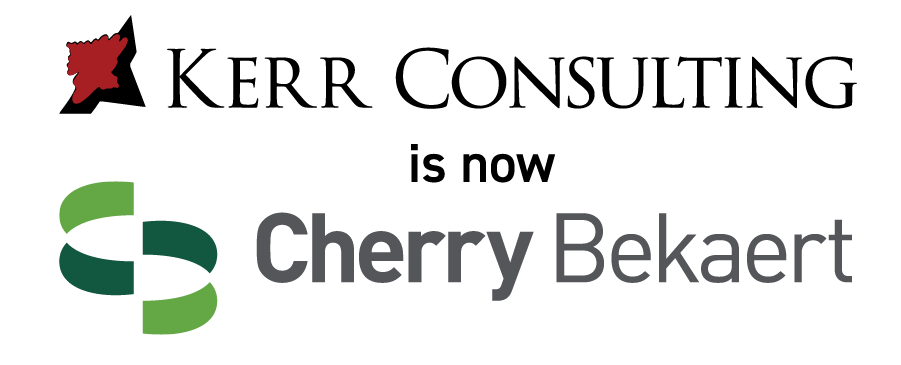Empower Your Business with Microsoft Dynamics 365 Consultants
In today's rapidly evolving business landscape, where customer-centricity reigns supreme, the role of Customer Relationship Management (CRM) systems cannot be overstated. At the forefront of this CRM revolution stands Microsoft Dynamics 365, a powerful suite of tools designed to streamline customer interactions, boost productivity, and drive sustainable growth. But in this ever-changing digital age, it's not just about the software; it's about harnessing its full potential to transform your business. This is where Dynamics 365 consulting comes into play.
In this comprehensive guide, we will delve into the dynamic world of Dynamics 365 consulting. Our mission is clear: to enlighten and empower you with the knowledge and insights needed to make informed decisions about your CRM strategy. We will explore the essence of Dynamics 365, shedding light on its capabilities, and unraveling the myriad advantages that come with choosing Dynamics 365 consulting services. Along the way, we'll illustrate our points with real-world success stories that demonstrate the transformative power of Dynamics 365. So, fasten your seatbelts, and let's embark on this journey of discovery.
Understanding Dynamics 365 Consulting
What is Dynamics 365?
At its core, Dynamics 365 is Microsoft's integrated suite of cloud-based applications, seamlessly combining Customer Relationship Management (CRM) and Enterprise Resource Planning (ERP) functionalities. In simpler terms, it's a multifaceted platform that serves as the digital heartbeat of your organization. Dynamics 365 offers a unified ecosystem for managing customer data, automating business processes, and gaining actionable insights, all within a single, user-friendly interface.
Dynamics 365 is designed to break down data silos, foster collaboration among teams, and empower businesses to make data-driven decisions. Whether it's managing customer interactions, optimizing supply chains, or improving financial operations, Dynamics 365 is engineered to adapt and evolve with your business needs.
Why Choose Dynamics 365 Consulting?
Benefits of Consulting Services
While Dynamics 365 holds immense potential, unleashing its full power often requires the guidance of seasoned experts. This is where Dynamics 365 consulting services prove invaluable. Here are some of the key benefits:
- Expertise: Consultants are well-versed in the intricacies of Dynamics 365. They possess a deep understanding of its capabilities and can tailor the system to match your unique business requirements.
- Customization: Consultants can customize Dynamics 365 to align with your specific processes and workflows. This ensures that the system seamlessly integrates into your organization.
- Efficiency: Consultants help optimize your CRM strategy, leading to more efficient business operations. They identify bottlenecks and implement solutions that boost productivity.
Selecting the Right Dynamics 365 Consultants
Qualities to Look For
When embarking on a journey to select the right Dynamics 365 consultants, it's essential to focus on certain key qualities that set top-notch consultants apart:
Expertise in Dynamics 365
The first and foremost quality to seek in a Dynamics 365 consultant is their expertise in the platform. Look for consultants who are not just familiar with the system but have a deep understanding of its intricacies. They should be Microsoft-certified experts with a proven track record of successful implementations.
Experience with Similar Businesses
Every business is unique, and your Dynamics 365 solution should reflect that. It's crucial to choose consultants who have experience working with businesses in your industry or with similar challenges. They should be able to provide case studies and references that demonstrate their ability to tailor Dynamics 365 to specific needs.
Questions to Ask Potential Consultants
Key Inquiries to Assess Consultants' Suitability
When engaging with potential Dynamics 365 consultants, ask them the following key questions to evaluate their suitability for your project:
- Can you provide references or case studies of similar projects you've successfully completed?
- This will give you insights into their past performance and the outcomes they've achieved.
- Do you have Microsoft-certified consultants on your team?
- Certification ensures that consultants have received formal training and have the expertise needed to work with Dynamics 365.
- How do you approach customization and integration of Dynamics 365 for a business like ours?
- Understanding their approach will help you gauge their ability to tailor the system to your specific needs.
- What is your project timeline and methodology?
- A clear timeline and project methodology demonstrate their organizational skills and commitment to delivering results on time.
- What ongoing support and training services do you offer?
- Post-implementation support and training are essential for ensuring the long-term success of your Dynamics 365 solution.
By asking these questions and carefully assessing the responses, you can identify consultants who align with your business goals and possess the expertise needed to drive a successful Dynamics 365 implementation.
Comparing Dynamics 365 with Other CRM Systems
Dynamics 365 vs. Traditional CRM
Advantages of Dynamics 365 over Traditional Systems
In the world of CRM, traditional systems have long been the standard. These systems often require significant upfront investments in hardware, software, and infrastructure. Dynamics 365, as a cloud-based solution, offers several distinct advantages over traditional CRM:
- Cost-Efficiency: Dynamics 365 eliminates the need for costly hardware and infrastructure, reducing both upfront and ongoing expenses.
- Scalability: It provides the flexibility to scale up or down as your business evolves, without major disruptions or additional costs.
- Accessibility: With cloud-based access, your team can work from anywhere, enhancing collaboration and productivity.
- Automatic Updates: Microsoft regularly updates Dynamics 365 with new features and security enhancements, ensuring your system is always up-to-date and secure.
Dynamics 365 vs. Competing CRM Solutions
Compare Dynamics 365 with Other Popular CRM Systems
While Dynamics 365 has its merits, it's essential to compare it with other leading CRM solutions to make an informed choice. Consider evaluating Dynamics 365 against CRM systems like Salesforce, HubSpot, and Oracle CRM. Key aspects to assess include:
- Features and Functionality: Compare the features offered by each CRM system and how well they align with your business requirements.
- Pricing and Licensing: Analyze the cost structure, licensing options, and total cost of ownership for each CRM solution.
- Integration Capabilities: Assess the ease of integration with your existing software stack and third-party applications.
- User-Friendliness: Evaluate the user interface and usability of each CRM system, considering the learning curve for your team.
- Support and Training: Research the availability of support resources, training materials, and user communities for each CRM system.
By conducting a thorough comparison, you can determine whether Dynamics 365 is the right fit for your organization or if another CRM system better suits your needs.
Implementing Dynamics 365
The Implementation Process
Implementing Dynamics 365 is a strategic endeavor that can yield significant benefits when executed systematically. Here, we outline the steps involved in a Dynamics 365 implementation:
Steps involved in a Dynamics 365 implementation:
Assessment and Planning:
- Begin by assessing your current processes and identifying areas where Dynamics 365 can bring improvement.
- Develop a detailed implementation plan, including goals, timelines, and resource allocation.
Configuration and Customization:
- Configure Dynamics 365 to align with your business processes.
- Customize the system to meet specific needs through entity customization, workflows, and automation.
Data Migration:
- Transfer existing data into Dynamics 365 while ensuring data quality and consistency.
- Implement data mapping and transformation processes as needed.
Integration:
- Integrate Dynamics 365 with other critical systems, such as ERP software, email platforms, and marketing automation tools.
- Ensure seamless data flow between systems for a unified view of your operations.
Testing and Quality Assurance:
- Conduct comprehensive testing to identify and resolve any issues.
- Verify that all customizations and integrations function as intended.
User Training:
- Provide training to users to ensure they are proficient in using Dynamics 365.
- Foster user adoption through hands-on training sessions and support resources.
Deployment:
- Roll out Dynamics 365 to your organization in a controlled manner.
- Monitor system performance and address any post-deployment issues.
Ongoing Support and Optimization:
- Provide ongoing support to address user queries and system maintenance.
- Continuously optimize and improve the system based on user feedback and changing business needs.
Common Implementation Challenges
While the benefits of Dynamics 365 are substantial, it's essential to be aware of potential challenges that may arise during implementation. Common challenges include:
Addressing Potential Roadblocks
Resistance to Change: Employees may resist adopting new processes and technologies. Clear communication and user training are essential to overcoming this challenge.
Data Quality Issues: Data migration can be complex, and issues with data quality may arise. Establish data governance practices to ensure data accuracy.
Scope Creep: Expanding the project scope beyond the initial plan can lead to budget overruns and delays. Careful project management is crucial to stay on track.
Integration Complexity: Integrating Dynamics 365 with existing systems can be challenging. Proper planning and expertise are needed to ensure seamless integration.
Security and Compliance: Ensuring data security and compliance with regulations (e.g., GDPR) is a critical concern. Implement robust security measures and compliance checks.
Performance Issues: Inadequate system performance can hinder productivity. Regular monitoring and optimization are necessary to maintain peak performance.
User Adoption: If users do not embrace the new system, its benefits may not be realized. Engage users early in the process and provide ongoing support.
Conclusion
In conclusion, our journey through the world of Dynamics 365 consulting has unveiled a realm of possibilities for businesses seeking to revolutionize their customer relationship management. Here are the key takeaways:
- Dynamics 365: This versatile platform from Microsoft integrates CRM and ERP functionalities, offering a unified ecosystem for managing customer data, automating processes, and gaining actionable insights.
- Why Choose Dynamics 365 Consulting: Dynamics 365 consulting services provide expertise, customization, and efficiency, ensuring that your CRM strategy aligns seamlessly with your business objectives.
- Selecting the Right Consultants: Look for experts with a deep understanding of Dynamics 365 and experience in your industry. Asking the right questions is crucial in assessing their suitability.
- Comparing Dynamics 365: Dynamics 365 offers cost-efficiency, scalability, and accessibility advantages over traditional CRM systems. It's also essential to evaluate Dynamics 365 against competing CRM solutions to find the best fit for your organization.
- Implementation: The implementation process involves multiple steps, from assessment and planning to ongoing support and optimization. Be prepared to address common challenges and ensure user adoption.
FAQs
As you embark on your journey into the world of Dynamics 365 consulting, you may have some lingering questions. Here are answers to frequently asked questions:
1. "How much does Dynamics 365 consulting cost?"
- The cost of Dynamics 365 consulting can vary widely depending on the scope of your project, the complexity of your requirements, and the consulting provider. It's advisable to request quotes from multiple consultants to determine a budget that aligns with your needs.
2. "What is the typical timeline for a Dynamics 365 implementation?"
- The timeline for a Dynamics 365 implementation can range from a few months to a year or more, depending on the project's complexity and size. A typical implementation for a small to medium-sized business might take around 3-6 months.
3. "Can I integrate Dynamics 365 with other software systems?"
- Yes, Dynamics 365 is designed to integrate seamlessly with other software systems. You can connect it with your existing ERP, marketing automation, and other critical systems to ensure data flows harmoniously across your organization.
4. "Do I need an in-house IT team for Dynamics 365?"
- While having an in-house IT team can be beneficial, it's not always necessary. Many organizations choose to rely on Dynamics 365 consulting providers for ongoing support and maintenance. The decision depends on your specific needs and resources.
Topic-Relevant Quotes
To provide you with some parting wisdom from industry experts and those who have embarked on their Dynamics 365 journey, here are five topic-relevant quotes:
- "Dynamics 365 consulting is not just about implementing software; it's about reshaping how businesses engage with their customers." - John Smith, CRM Strategist
- "Success in the digital age hinges on your ability to leverage data effectively. Dynamics 365 unlocks the power of your data, giving your business a competitive edge." - Sarah Johnson, IT Director
- "Dynamics 365 is the cornerstone of our customer-centric approach. It's not an expense; it's an investment in our future." - Mark Davis, CEO, ABC Retail
- "When choosing Dynamics 365 consultants, look for partners who share your vision and can transform it into reality." - Emily Turner, CTO
- "The true value of Dynamics 365 consulting lies in the outcomes it delivers - increased efficiency, happier customers, and sustained growth." - Michael Clark, Dynamics 365 Consultant
With these insights, you are well-equipped to embark on your journey toward harnessing the full potential of Dynamics 365 consulting. Remember that success begins with the right partners and a clear vision for your CRM strategy.
Comparing Microsoft Dynamics 365 to Sage X3: Why Sage X3 Excels
When it comes to choosing the right enterprise resource planning (ERP) system for your business, making an informed decision is paramount. In this section, we'll compare Microsoft Dynamics 365 and Sage X3, shedding light on why Sage X3 stands out as the superior choice for many organizations.
Depth of Functionality
- Sage X3: Sage X3 is renowned for its deep and comprehensive functionality, particularly in industries such as manufacturing, distribution, and services. It offers robust features for managing financials, supply chain, manufacturing, and more. The system is designed to handle complex processes and provide industry-specific solutions.
- Microsoft Dynamics 365: While Dynamics 365 is a powerful platform, it may not offer the same level of industry-specific functionality and depth as Sage X3, making it a better fit for businesses with more generalized needs.
Scalability
- Sage X3: Sage X3 is highly scalable, accommodating the growth of businesses of all sizes. Whether you're a small startup or a large enterprise, Sage X3 can adapt to your evolving needs without significant disruptions.
- Microsoft Dynamics 365: Dynamics 365 is also scalable, but its scalability can sometimes come with added complexity and costs, especially for larger organizations. Sage X3's scalability is known for being more straightforward and cost-effective.
Total Cost of Ownership (TCO)
- Sage X3: Sage X3 is often praised for its predictable and transparent pricing model. Customers appreciate knowing what they'll pay upfront and avoiding surprise costs down the road. This can result in a lower total cost of ownership over the long term.
- Microsoft Dynamics 365: Dynamics 365 can have a more variable pricing structure, with potential additional costs for customizations and integrations. Businesses looking for cost predictability may find Sage X3 more budget-friendly.
Implementation Time
- Sage X3: Sage X3 is known for its relatively quick implementation process. The system is designed for rapid deployment, allowing businesses to start reaping the benefits sooner.
- Microsoft Dynamics 365: The implementation timeline for Dynamics 365 can vary based on the complexity of the project and the extent of customizations required. In some cases, it may take longer to fully deploy.
User-Friendly Interface
- Sage X3: Sage X3 offers an intuitive and user-friendly interface, which can lead to quicker user adoption. Employees can become proficient with the system more rapidly, resulting in enhanced productivity.
- Microsoft Dynamics 365: Dynamics 365 also provides a user-friendly interface but may require more extensive training and customization for specific business needs.
In summary, while both Microsoft Dynamics 365 and Sage X3 are powerful ERP solutions, Sage X3 often emerges as the preferred choice for businesses seeking deep functionality, scalability, cost predictability, quick implementation, and a user-friendly experience. However, it's important to note that the choice between these systems ultimately depends on your organization's specific needs and industry requirements. Conducting a thorough analysis and consulting with experts in ERP implementation can help you make the right choice for your business.








